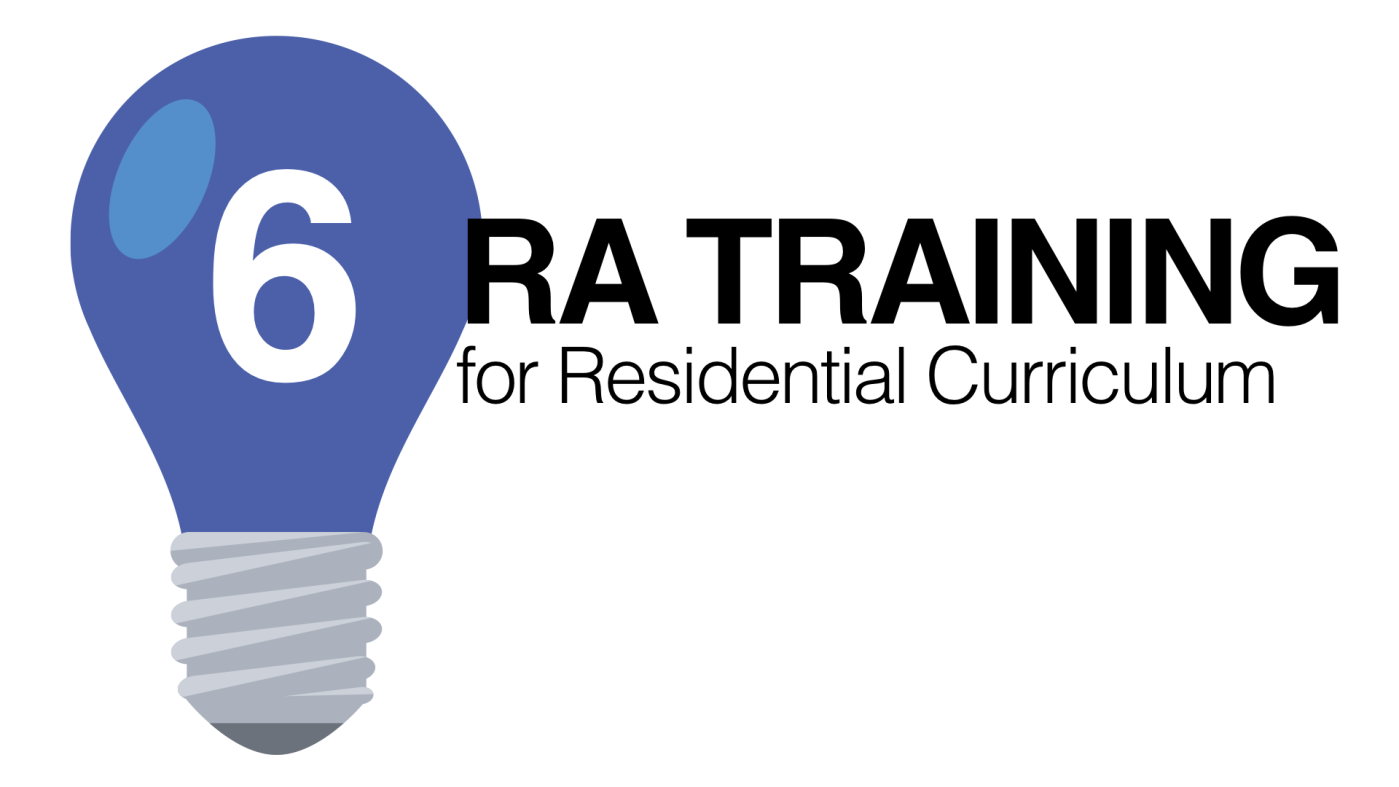The following is part of a series of blog posts addressing a number of areas related to developing a training program for RAs and student staff members working within a residential curriculum model. Posts included in this series are:
Assessment has an important role to play when designing your RA Training efforts, both in terms of assessing the effectiveness of your training programs themselves and in contributing to the overall success of your curriculum and your departmental assessment efforts. By incorporating multiple forms of formative and summative assessment into your training, you can get actionable insights to improve your training curriculum over time. Furthermore, by incorporating these assessments into your training, you can also use the assessment strategies as teachable moments for staff members who must also integrate assessment into their practice. Presenting assessment data about your curriculum and department can help engender buy-in–both in terms of the achievement of departmental goals and in the importance of assessment itself.
Closing The Loop on Assessment Data
One topic that may often be overlooked in designing your RA training content is how your review processes are evolving the curriculum. For frontline staff members like RAs, it is important to “close the loop” on assessment. Closing the loop entails helping RAs understand how their feedback and the assessment information they collect results in changes to practice. Doing this can help shift RAs away from checklist mentality when it comes to administering an assessment strategy. It demonstrates that the work they do is actually used for improvement. It data they collect does not just sit on a shelf.
By reviewing your assessment data with your staff members, you can also tie this data back to departmental goals and help staff members see their place in helping improve the department and the experiences of students. By being transparent with this data–showing both the good and the areas for improvement–you can help staff members understand that assessment does not exist just to reinforce what one is already doing, but to lead to discussion and change, reaching towards improvement. This helps reframe assessment efforts. It can also help you in developing a culture that “celebrates controlled failure.”
Focus on Learning
A curricular approach is about enhancing student learning. RA training is about enhancing the learning of student staff members. When designing your assessment efforts for either your curriculum or for training programs, try to design your assessments to include as many direct measures of student learning as possible.
For example, if you are training your student staff members on college policy, instead of asking them if they think they understand the policies (“Do you feel like you understand the college policies?”) ask them direct questions about the policies instead (“What is the college policy related to alcohol possession and consumption on campus?”). If the staff members can effectively answer the question, then you have effectively taught them what you wanted them to know. If they cannot, this can give you insights into whether your training plans and pedagogy are being effective.
“Modeling the Way” With RA Training Assessment
It is common for many departments to do some form of post-training survey to assess the effectiveness of their efforts. While a good first step, post-training monolithic assessments can only provide a portion of the overall assessment picture you may need to capture. In-the-moment assessments can also be an important part of your efforts. When designing training sessions, incorporate assessment points that can allow the trainers to adjust their training in response to real time student staff needs.
Returning to the previous example, if you are teaching about college policies, provide a short quiz during your session or do a check for understanding to see if student staff members are retaining and understanding what you are training them on. Depending on the content being taught, you could also incorporate experiential exercises where they have to apply what they learned. Observers can provide feedback and this data can help inform whether a topic needs to be revisited, or if the training is having its intended effect. Many professionals who undertake curricular approaches find a lot of inspiration from books such as Classroom Assessment Techniques and Learning Assessment Techniques. Both are compendiums of various assessment techniques and activities that can be incorporated into your training. They are also excellent resources when developing assessment for your strategies with students throughout the academic year.
Finally, by incorporating in-the-moment assessment efforts, and diverse assessment strategies into your training programs, you are also helping student staff members understand that assessment is not just doing a post-event survey. Helping them understand that assessment is deeply incorporated into the work of educators can break them away from a mindset that might see assessment as an “add on.” This models the way for resident assistants by allowing them to see how diverse assessment strategies can be deployed and how they can change practice.
Conclusion
Assessment can play a critical role in your RA training efforts–both in terms of improving the training itself and establishing an organizational culture of learning and assessment. In order to be successful, try to think of assessment as an area that is incorporated into all of the work you do, woven into the fabric of all of your educational efforts. This process can take time, but in the end, it will lead towards transformation.
Key Questions
- How are you sharing the assessment data you collect with your staff members?
- How are you sharing your assessment data “story”?
- What diverse assessment strategies are you depoying in your RA training efforts?
- How can you make your RA training assessments more learning focused?
- How are you moving your organization towards a “culture of assessment”?
